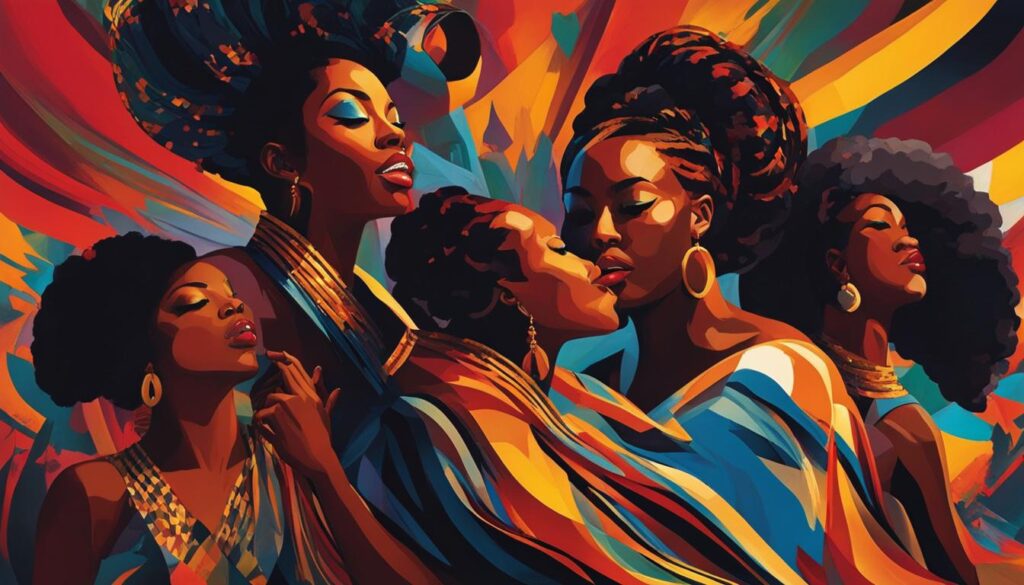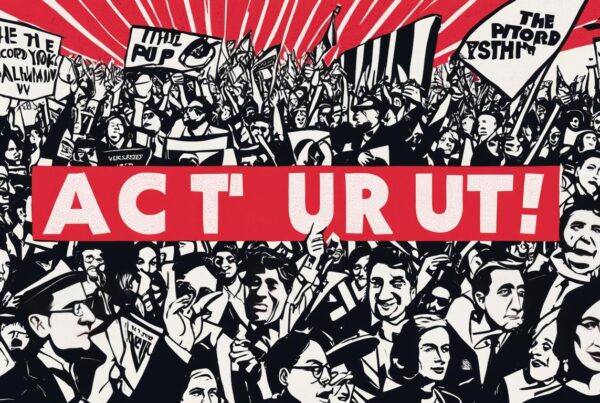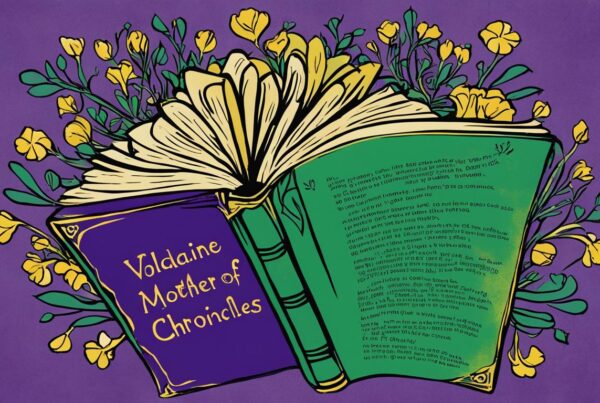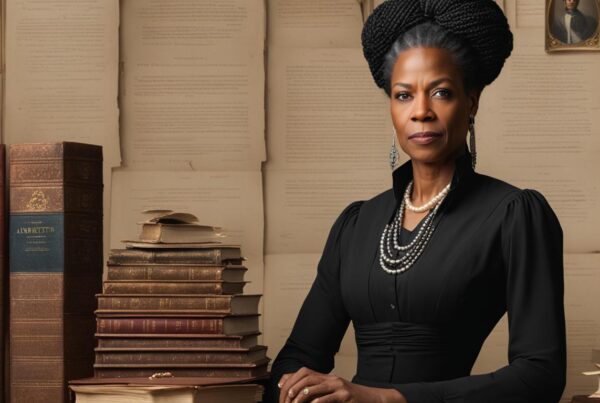Welcome to our audiobook review of “A Little Devil in America: Notes in Praise of Black Performance,” written by Hanif Abdurraqib. This book reflects on the essence of black performance across America, from music and dance to sports and activism.
As we explore Abdurraqib’s work, we will delve into his insights on black performance, its cultural significance, and how it has experienced a resurgence in recent years. We will also analyze his writing style and discuss the audiobook experience, including narration and critical reception.
Join us as we take a deep dive into Hanif Abdurraqib’s “A Little Devil in America” and its celebration of black performance.
About Hanif Abdurraqib
Hanif Abdurraqib is a prolific writer and cultural critic known for his unique insights into the intersections of popular culture and personal experience. Born in Columbus, Ohio in 1983, Abdurraqib has become a respected voice in the world of literary criticism and cultural commentary, with work that is celebrated for its poetic prose and sharp analysis.
Abdurraqib’s previous works include the critically acclaimed essay collection “They Can’t Kill Us Until They Kill Us” and the full-length poetry collection “A Fortune For Your Disaster.” In addition to his writing, he is also a spoken word artist and seasoned live performer, with a talent for engaging and inspiring audiences.
Throughout his career, Abdurraqib has demonstrated a deep understanding of cultural movements and the ways in which they shape our experiences. His writing frequently explores themes of race, identity, and popular culture, drawing on personal reflection and historical research to offer compelling insights into the world around us.
Abdurraqib’s expertise in writing about cultural themes and experiences shines through in “A Little Devil in America,” showcasing his extensive knowledge and passion for the subject of black performance and its crucial role in American history and culture.
“Hanif Abdurraqib is one of the finest young cultural critics around – by turns cool-headed and burning with love for the things he loves, intensely knowledgeable without ever feeling like a know-it-all. He writes beautifully, about everything from Carly Rae Jepsen to System of a Down, and, I’m pretty sure, could make even the coldest of hearts understand why Steely Dan matters.”
– Molly Young, Vulture
A Brief Overview of “A Little Devil in America”
Hanif Abdurraqib’s “A Little Devil in America: Notes in Praise of Black Performance” offers a poignant and reflective tribute to the essence of black performance across America. Through a collection of essays and anecdotes, the book explores the interplay between black performance, identity, and culture, highlighting the rich history of black contributions to American entertainment.
The book is divided into four sections, each exploring a different aspect of black performance. The first section, “Beginnings”, examines the early history of black performance in America, including minstrel shows and vaudeville acts. The second section, “Gospel”, focuses on the role of religion in black performance, specifically in music and dance.
The third section, “Dance”, delves into the history of black dance in America, including the influence of African and Caribbean cultures on American dance forms. The final section, “Legacy”, looks at the current state of black performance in America, exploring the ways in which contemporary artists are building upon the legacies of those who came before them.
Overall, “A Little Devil in America” offers a powerful reflection on the cultural significance of black performance and the ways in which it continues to shape American entertainment today.
Exploring the Essence of Black Performance
At the heart of “A Little Devil in America” is an exploration of the essence of black performance and its cultural significance in America. Abdurraqib’s book is a tribute to the transformative power of black art and the resilience of black artists in the face of adversity. Through his writing, Abdurraqib unpacks the ways in which black performance has shaped and continues to shape American culture.
Black performance, as Abdurraqib notes, is more than just entertainment; it is a vital part of American history and culture. From the jazz clubs of Harlem to the gospel choirs of the Deep South, black artists have carved out spaces for themselves in American society. They have used their art to express complex emotions and experiences that might otherwise have been overlooked or ignored.
Furthermore, black performance has often served as a platform for political activism, as evidenced by the civil rights movement and the Black Lives Matter movement. Through their performances, black artists have been able to amplify their voices and make their messages heard.
Overall, Abdurraqib’s “A Little Devil in America” proves to be a powerful tribute to the cultural significance of black performance in America. By exploring the essence of black performance, Abdurraqib celebrates the art and the artists who have helped shape American culture.
The Resurgence of Black Performance in Popular Culture
Over the past decade, black performance has experienced a significant resurgence in popular culture across various genres, including music, film, and television. Through his exploration of black performance in “A Little Devil in America,” author Hanif Abdurraqib sheds light on this cultural phenomena.
One of the most notable examples of this resurgence can be seen in the music industry, where black musicians have been at the forefront of shaping popular music trends. From Beyonce’s “Black is King” visual album to Kendrick Lamar’s Pulitzer Prize-winning album “Damn,” black artists are redefining what it means to be a cultural icon in the music industry.
In addition, black actors and filmmakers are breaking barriers and pushing boundaries in Hollywood. The success of movies like “Black Panther” and TV shows like “Insecure” and “Atlanta” have highlighted the need for more diverse representation in the industry.
“Black performance has always been a site of innovation, cultural preservation, and political resistance,” writes Abdurraqib in “A Little Devil in America.”
Through his vivid and insightful descriptions, Abdurraqib highlights the power of black performance and its ability to reflect and shape the cultural landscape. As society becomes more attuned to the value of diverse representation and storytelling, it’s clear that black performance will continue to be a driving force in shaping popular culture.

Analysis of Abdurraqib’s Writing Style
One of the most striking elements of Hanif Abdurraqib’s “A Little Devil in America” is his writing style. Through his use of language and storytelling techniques, Abdurraqib creates a vivid and emotional listening experience.
Abdurraqib’s writing style is characterized by a poetic and lyrical quality that amplifies the emotional depth of his narratives. His use of metaphors and similes creates vivid imagery that draws listeners into the world of black performance in America. For example, in describing a gospel choir, Abdurraqib writes:
“The sound of their voices was wide enough to fit the entirety of the sky, and the idea of their singing seemed like it could dismantle any bit of doubt you might have in a matter of minutes.”
This use of vivid, poetic language adds a layer of beauty to the audiobook that enhances the listener’s experience.
Abdurraqib’s storytelling techniques also contribute to the audiobook’s impact. He weaves together personal anecdotes, historical facts, and cultural analysis to create a multi-dimensional exploration of black performance in America. His narratives are structured in a way that invites listeners to connect with the experiences of the performers and reflect on the cultural significance of their work.
Overall, Abdurraqib’s writing style is a key factor in the success of “A Little Devil in America” as an audiobook. His poetic language and storytelling techniques create a listening experience that is both emotional and thought-provoking.
Narration and Audiobook Experience
One of the standout features of “A Little Devil in America” is the exceptional narration that enhances the listening experience. The audiobook version is read by the author himself, Hanif Abdurraqib, which adds a unique level of authenticity to the experience. His passion for the subject matter is evident in his delivery, and listeners are immediately drawn in by his engaging and expressive voice.
Abdurraqib’s narration is well-paced, allowing listeners to fully absorb the content and reflect on the themes presented. He also uses subtle inflections and vocal tones to accentuate certain passages, adding depth and emotion to his words.
Moreover, the audiobook includes music and other sound elements that enhance the listening experience. The musical interludes serve as a perfect complement to the book’s exploration of black performance, and the sound effects further immerse listeners in the atmosphere of the various settings described in the book.
Overall, the audiobook version of “A Little Devil in America” delivers an exceptional listening experience that is a must for fans of narration and audiobooks. Abdurraqib’s voice talent, combined with the music and sound elements, provides a holistic experience that truly brings the book to life.
Reception and Critiques
Since its release, “A Little Devil in America” has garnered widespread attention and critical acclaim, particularly for its exploration of black performance and culture in America. Many readers and critics alike have lauded Hanif Abdurraqib’s thoughtful reflections and evocative prose.
“Abdurraqib invites readers to step into his confident shoes and engage in the thrill and struggle of being alive. His audiences readily accept the invitation and eagerly follow him wherever he leads.” – The Washington Post
The book has been praised for its ability to capture the essence and cultural significance of black performance, with reviewers commending Abdurraqib’s insights and storytelling prowess. The audiobook version, in particular, has been lauded for its engaging narration and unique listening experience.
Despite its overwhelmingly positive reception, some critics have noted that “A Little Devil in America” may not be as cohesive as previous works by the author, with certain themes and ideas feeling disjointed.
Overall Reception
| Source | Reception |
|---|---|
| Publishers Weekly | “A beautifully crafted meditation on the power of performance and art…” |
| The New York Times | “The book is a feat…Abdurraqib has invented a new form: the biographical essay as pop music criticism, and vice versa.” |
| NPR | “[A] thoughtful and boundary-expanding collection of essays…This is writing about pop culture that feels essential.” |
| Los Angeles Times | “[Abdurraqib] writes with a poet’s eye, paying acute attention to the detail of his subjects. Reading it you’ll feel like you’re hearing the best tour guide in America.” |
Overall, “A Little Devil in America” has been well-received by both readers and critics alike, solidifying Hanif Abdurraqib’s place as a prominent cultural critic and commentator. As discussions surrounding black performance and culture continue to evolve, this book’s impact is sure to remain a vital contribution to the conversation.
Conclusion: Final Thoughts on “A Little Devil in America”
In conclusion, Hanif Abdurraqib’s “A Little Devil in America: Notes in Praise of Black Performance” is a masterful exploration of the essence and cultural significance of black performance across America. His lyrical writing style and insightful reflections offer a unique perspective on the subject that is both informative and engaging.
Abdurraqib’s expertise in writing about cultural themes and experiences is evident throughout the book, and his analysis of the resurgence of black performance in popular culture is particularly noteworthy. The audiobook version, narrated by the author himself, enhances the listening experience and adds an extra layer of intimacy to the already powerful material.
The reception of “A Little Devil in America” has been overwhelmingly positive, with many critics and readers praising Abdurraqib’s ability to capture the essence of black performance in such a meaningful way. It is a must-read for anyone interested in exploring and understanding the rich history and cultural significance of black performance in America.
Overall, we highly recommend “A Little Devil in America: Notes in Praise of Black Performance” for its insightful reflections, beautiful prose, and powerful message. It is a brilliant tribute to the enduring legacy of black performance in America and a fitting testament to its cultural significance.



